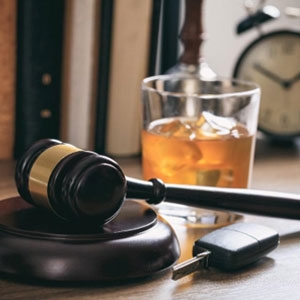In this article, you can discover:
- Why evaluating evidence strength is crucial before deciding on a DUI trial.
- How understanding local legal personalities impacts DUI trial decisions and outcomes.
- The importance of rectifying jury misconceptions for a fair DUI trial.
When Does It Make Sense To Take My DUI Case To Trial? What Are Common Misconceptions About DUI Trials?
Deciding whether to proceed to trial in a DUI case requires careful evaluation of numerous factors and a thorough case-by-case analysis. The strength of the evidence plays a significant role in this decision-making process.
In instances where the evidence of guilt is overwhelming, seeking a plea deal may be the better strategic option. However, if there are perceived weaknesses in the prosecutor’s case, or if there is a belief that a jury might be sympathetic, opting for a trial could prove beneficial.
The jurisdiction and individuals involved in the case also influence the decision about whether or not to proceed to trial. Every community has distinct values, and prosecutors and judges have varying personalities and levels of experience, all of which can impact the outcome of a trial.
For example, a novice prosecutor might present an opportunity to exploit legal inexperience. Certain judges might be inclined to impose minimal penalties in the event of a guilty verdict, while others may have a reputation for handing down very harsh sentencing after trial. Understanding the tendencies of these legal professionals is crucial to your analysis of whether to take a case to trial.
An experienced attorney is indispensable in navigating these complexities, providing insights into the reputations and patterns of prosecutors and judges, and offering an informed analysis of how a jury might perceive different pieces of evidence. This expertise ensures that you can make a well-informed decision on whether to proceed to trial.
There are many misconceptions about DUI trials that are often times fueled by depictions in pop-culture, such as legal TV shows and movies. A proficient attorney plays a vital role in addressing and rectifying these misconceptions during jury selection, ensuring jurors can set aside any preconceived notions and apply the law impartially and accurately.
What Is Important To Know About The Trial Phase Of A DUI Case?
Navigating a DUI trial is a multifaceted process that requires a lot of preparation on the part of your attorney. When a not guilty verdict is reached, the trial undeniably proves its worth. However, a guilty verdict accompanied by a harsh sentence can lead to regret over the decision to go to trial.
A DUI trial generally commences with jury selection, where a substantial pool of potential jurors is narrowed down through a series of questions aimed at identifying any biases and ensuring impartiality. This phase also serves as an opportunity for the attorney to establish a connection and credibility with the jurors, as well as to rectify any misconceptions they may have about legal proceedings.
Following the jury selection, opening statements are delivered by both the defense and prosecution outlining their respective cases and setting the stage for the trial. The prosecution typically asserts the defendant’s guilt and presents a summary of the evidence, while the defense emphasizes the burden of proof beyond a reasonable doubt, encouraging the jury to maintain an open mind.
Witnesses are then called upon, starting with the prosecution. The prosecutor’s often includes police officers, expert witnesses, eye witnesses, and victims. The defense is granted the opportunity to cross-examine these witnesses, often with the aim to undermine their credibility or the reliability of their testimony.
Once the prosecution rests, the defense may request a judgment of acquittal, urging the judge to dismiss the case due to the state presenting insufficient evidence. If this motion is denied, the defense presents its own witnesses and evidence, which may include expert testimonies to challenge the prosecution’s case. The prosecution then conducts cross-examinations, after which the defense may renew their motion for a judgment of acquittal.
If the trial proceeds, closing arguments are presented by both sides, summarizing the evidence and reiterating key arguments. The defense typically focuses on establishing reasonable doubt, while the prosecution aims to demonstrate how the evidence satisfies each element of the charged offense beyond a reasonable doubt.
The trial concludes with jury instructions and deliberation, leading to a unanimous verdict of guilty or not guilty. In instances where the jury cannot reach a consensus, a mistrial is declared, necessitating a retrial.
Is It Worth Going To Trial For A DUI Charge?
Ultimately, whether a DUI trial is worth it depends on the outcome and the perspective of those involved. It is a complex decision with potential for significant impact, making it crucial to weigh the options and potential outcomes carefully.
For more information on the Litigation Of A DUI Case In Florida, an initial consultation is your next best step. Get the information and legal answers you are seeking by calling (407) 890-8472 today.

